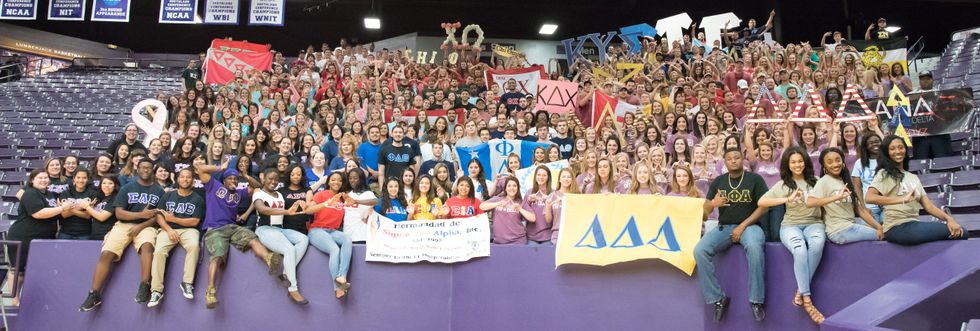If you are a college student in the United States, you will be affected in some way by Greek life.
It doesn't matter whether you want to join or not. When you go to school, you will hear about it all the time. You will hear about which frats throw the best parties, be asked which sorority you are rushing, and see them hosting charity events. And of course, you will hear the criticisms.
It is impossible these days to not hear about the criticisms surrounding Greek life, the most common one being the high rates of sexual assault. There are also the criticisms that it promotes binge-drinking and partying, it fuels nepotism, the hazing, and there have been numerous racist incidents involving fraternities.
If you ask anybody in Greek life though, they will usually tell you these criticisms are overblown. Yes, occasionally there might be some racist jokes. Yes, sometimes a sexual assault might occur, but they will assure you that these are just a few bad apples. Then they will wax poetic about the various benefits of Greek life, how it fosters lifetime friendships, instills good values such as serving the community, and grooms young adults for professional life.
But there is another question you should ask. Who reaps these benefits?
In a study conducted by Princeton University, researchers found that at their school 77% of fraternity members and 73% of sorority members were white, despite making up 47% of the student body. Additionally, 30% and 19% of fraternity and sorority members were legacy admits, meaning they were children of alumni. Obviously, this is only one school and not necessarily reflect the entire United States. Fraternities and sororities do not publish statistics on their demographics, so it is impossible to tell exactly how pervasive this phenomenon is. Nonetheless, it is worrisome and is surprising, considering that the first fraternities were founded by the people that have always been most privileged in our country: white, upper-class men.
You do not need an extensive, university-sponsored study to understand that it is difficult for students of lower incomes to join Greek life. Not only must you maintain a certain GPA, but you must pay monthly dues in order to stay in. These can range in cost from $250 to $775, and that is not counting “new member fees" or “badge fees" that may be added to the overall cost. Additionally, members must attend regular meetings and functions. If somebody comes from a low-income family and has to work in order to make it through college, it will be significantly harder to join Greek life.
Some organizations offer payment plans, but many potential pledges still say this is not enough. This begs the question: is Greek life really creating new leaders, or is it just fostering a culture of nepotism and providing a pathway for those born into privilege to access high-paying jobs more easily? This is not to say it is impossible for someone of lesser means to join, but it is significantly harder.
In recent years, excessive drinking and hazing-related deaths have also caused Greek life to come under fire. It is not uncommon for college students to abuse alcohol, however, members of Greek life are significantly more likely to abuse alcohol. One study by Harvard found that 4 out of 5 fraternity and sorority members are binge-drinkers in comparison to 2 out of 5 overall college students.
Another study at Brown University found that fraternities are often opposed to alcohol education and intervention because they view it as an impediment to their social and sexual goals. Again, this is not to suggest that only Greek life-affiliated students binge-drink. Many college students engage in binge-drinking while they are in school, but they are much more likely to do so if they are involved in Greek life.
These are only some of the problems associated with Greek life. There are many, many more, which I will discuss in next week's article. But for now, I want readers to sit and consider the facts they have been presented with, and ask themselves the kind of mentality that Greek life promotes through its culture of exclusion and binge-drinking.



















